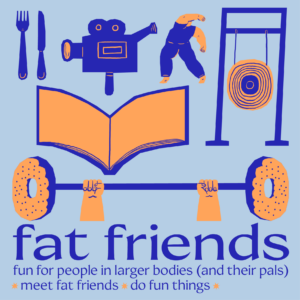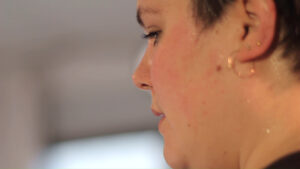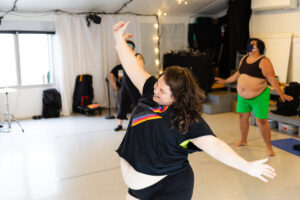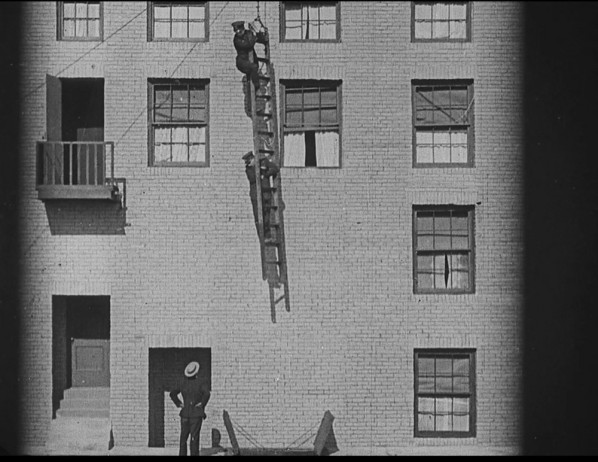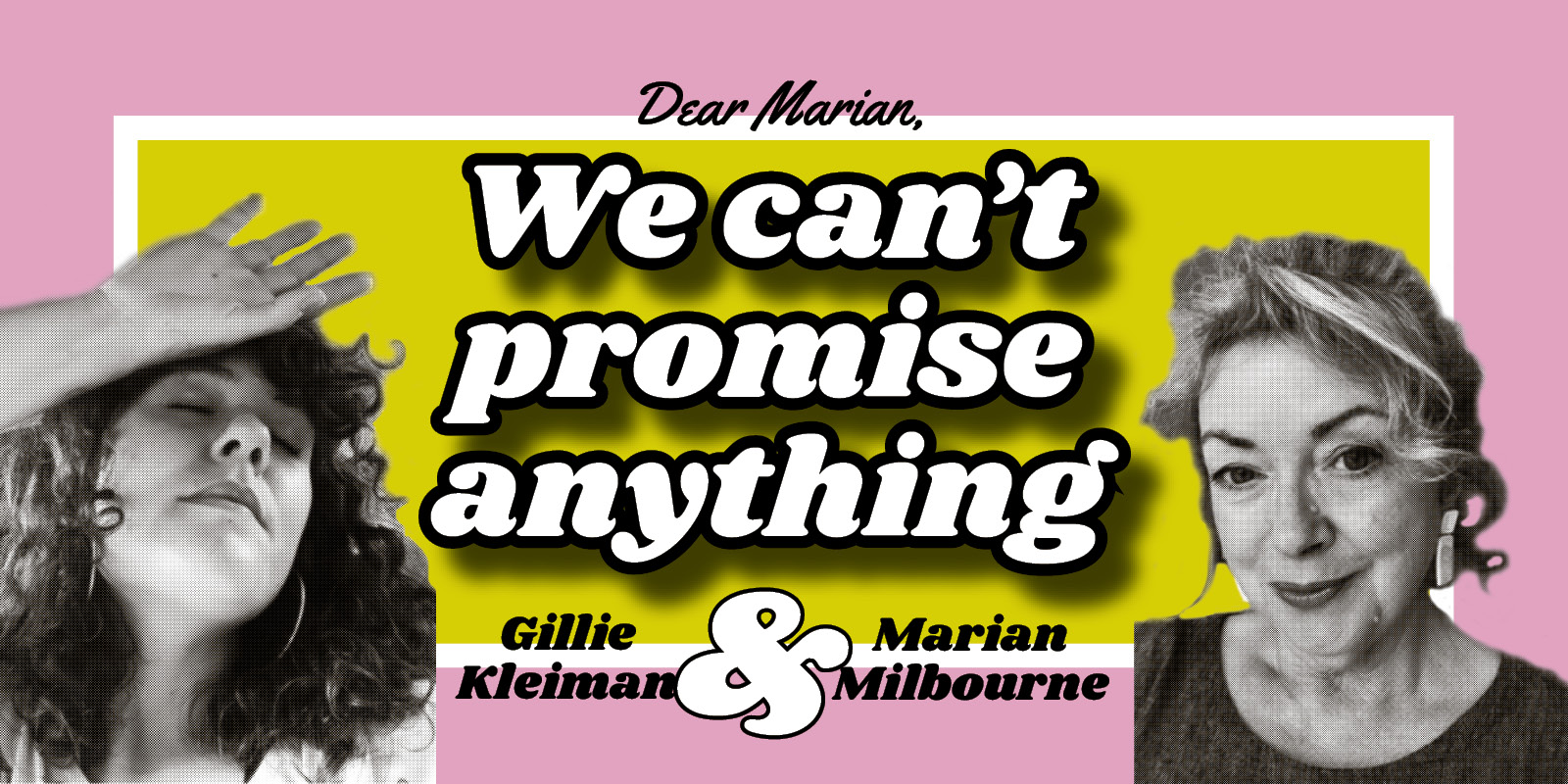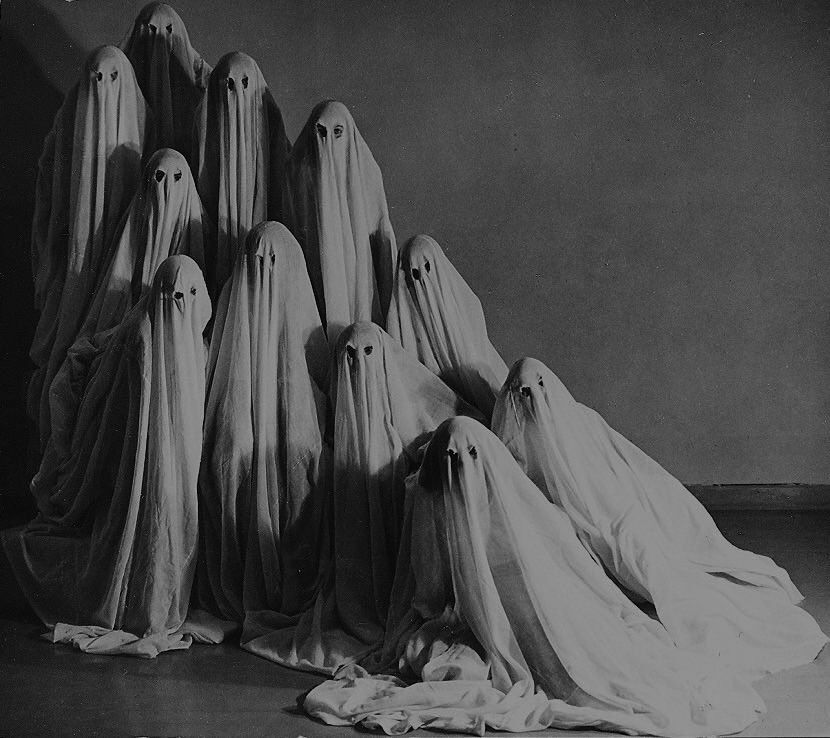Image: Mary Wigman’s ghosts, because it’s never not relevant
I have been appointed to the Freelance Task Force. I am being backed by Jerwood Arts. Here are some very brief thoughts about that, written hastily and in a long form (There are headers for navigation/selection of what you want to read). I might change things as I go along, even after I post it. My thoughts are maybe not that important but I am finding it increasingly important to write my thoughts down; this is part mental health self-care 101, part a wish to log something of my thinking about this and other things in this moment, and part a desire to speak publicly about some of this. I think that these reasons are in any case intertwined and I am interested particularly in the personal and interpersonal and social and political impact of publicness of thought (see Virno, Arendt and so on, and I’ll certainly have to, because I can only now remember the headlines), and I intend to say more about that a bit later.
I considered applying to at least a couple of organisations once I’d seen and somewhat understood what the Freelance Task Force was becoming. I was a bit disheartened to see so few dance organisations get involved, and I hope that maybe something else is coming on that front (but I’m just guessing so don’t take that as a trade secret or anything. Nobody has told me anything). I am often involved in conversations about how the interlinked fields of dance, theatre, performance and Live Art (always capitals, right?) are organised, and I find that the way that I think is suited to considering structures, processes, and policies. I think in a way that is often considered utopian but I’m up for that and most of the time what people appear to mean by that is that it is outside of what they think is possible right now, or desirable right now, or palatable right now. I really love being part of such discussions but mostly I am driven by the need for action, and have taken part in all sorts of bits and bobs over the past decade-and-a-bit feeling a bit frustrated a lot of the time. The Freelance Task Force seemed and seems to me like a really bloody great idea and I’m pleased it’s happening and I’m pleased I’m doing it; it feels to me like a useful and unusually well and collectively resourced continuation of lots of other threads of action that have happened in my area of work. It is not unusual for freelancers to get together and try and change things, but it is unusual for organisations to get behind such actions in this way. This is good. I am hopeful.
But I’m feeling so sick about it. So worried. Here’s why:
I worry that I am not the right person
I know that each organisation involved had its own process for selection, ranging from formal recruitment processes led by HR teams to more informal conversations with existing individuals and networks. I was backed via an in-between process, where those of us who were from the relevant fields were asked if we would like to and then there was a vote after that. Originally it was going to be a name out of a hat which would have been fine, but I and others suggested we decide between ourselves. For reasons of time, I understand, a vote was the only possible way, but it’s not perfect by any means. I had a freak out as I voted, another one when I found out I had been selected (which precipitated two very long conversations with friends to help me unpick it – thanks Andrew and Beckie, you wee legends), and quite a lengthy back and forth by email and a conversation with Jon and Lilli from Jerwood before I felt I could even in my current discomfort take on this work. I have had another freak out seeing all the announcements on Twitter which is what has motivated me to write a bit. I don’t know if I’m the right person, but I do think I can contribute a lot to this action and have the will to bring my capacities and competencies to it. I do wish I’d realised or asked if it could be job-shared and I’m sorry now that I didn’t. I’ll know better for next time that that’s something I can ask about.
But to be clear: I don’t think I’m doing this because I’m special somehow. I see the congratulations being passed around and have been the recipient of some of them, and it’s nice – thank you. The ‘right person’ doesn’t exist and the ‘best person’ doesn’t exist. I’m not the winner of a prize; I was selected through a process that is one step up from winning a raffle. This is work, and work that I think could be really important if we do it thoughtfully. I want to do this work, but I don’t need to be celebrated for doing it.
I worry about the issue of representation
I have seen already on social media and on the posts of organisations language around representation – in the sense that a freelancer is representing an organisation, or representing a city or region. This is not how I have understood it at all. I work in dance and performance and live in Newcastle upon Tyne. There are few dance artists and choreographers and there are few participants from the Northeast. I have experiences of each but they are mine. I have lots of colleagues and friends who have similar experiences to me but they are also different. Jerwood has made it very clear to me that I represent only myself, not the organisation, and I think that that is good and right; otherwise the whole drive of the exercise is lost. But I also don’t think I’m in the business of representing anyone else; I do not need to represent anyone for my contribution to be helpful, effective, maybe with some insight and innovation and grounded in some common experiences. I will solicit outside information and undertake conversations as I see necessary once we begin the work, but I need to be conscious that I am being paid and others aren’t, and I don’t want to take something for nothing.
Further on the issue of representation, I don’t much like the idea of an organisation or person representing a place just because they are there. This would be a very bad idea indeed. For the past decade I have had, for instance, a very challenging relationship with the major dance organisation in my city (which has, thankfully, improved for the most part). Just because they are the only building-based dance organisation in my city does not mean they represent dance in this city or this city in danceland. Moreover, I don’t want to be a representative decided by other than that or those which I would be representing. The dance artists of the Northeast, for instance, would probably not have chosen me, but dance artists working in a particular frame might have, or artists working in the intersection of dance and live art, or maybe dance artists who have a foot in the game in academia. I’m not at all sure about any of these, but I draw attention to them to show how little I think it is helpful to take on the work of representing in this case. In a way this is rather more apparent because the organisation paying my fee is funder working nationally and across disciplines through non-state-funded means, so my ‘constituency’ is less clear. This does not mean that I do not consider myself responsible or caring for others in my field, but I think it does mean I can speak my mind and heart and be flexible and communicative about to whom I am relating in different ways depending on how the work develops.
I worry if this is the right conversation
I worry that we will get caught in the details of performance and its organisation and end up having interminable and well-rehearsed dialogues about…all the things we always talk about for which I am too wound up to list. My position this morning is that I want to zoom out as we plan our Zooms, and prepare for a bigger conversation about the relationship between the arts and neoliberal mechanisms. Without doing that we will forever be tinkering at the edges, trying to get a little bit more money for being a little bit more commercial until the possibility of artmaking to change everything for everyone completely disappears. I want to think, rather, about how to sustain a rich cultural life for everybody and what the role of freelancers is in that. This might mean all kinds of really difficult things, like dropping our desire to be the arbiters of what is culture and is not, the end of careerism, uncoupling performance from spectacle-making and showing off, stepping aside for other forms of culture to take centre stage. This can’t be anything but hard and will require a real examination of views and actions, not least my own.
I worry that I am too ‘radical’
In my circles of mostly very leftist arts practitioners who are engaged with political and critical theory and often different forms of social action, I find myself with many who share my views. This is pretty normal I reckon, and OK. Lilli from Jerwood reminded me in our discussion that people on the Freelance Task Force will be from many different sub-sectors of the field, and scrolling through Twitter I see that I know hardly anyone, when I know mostly everyone in my little corner. In this corner, I think most of the people I’ve spoken to lately are willing to change almost everything. People talk eloquently and in an informed, considered way about how to dismantle and completely change the organisations we hold dear – beloved Lois Keidan of LADA stepped down this week to allow her organisation to do something like that – and are quick and, in my view, right to connect the cultural sector to other parts of society and the economy to think about how we establish better conditions for artwork, artists and audiences to be well. I want to think forensically about what we really want to keep and what can be put on the compost heap. (I really mean what, not who, though sometimes I do think there are cultural workers who work like they’d rather work in the corporate sector and I wonder why they don’t just do that. But that’s for another time.)
For me, there’s a lot to be put on the compost heap – once all the disease and infestation has been taken out, and burned.
I worry about how we will organise ourselves, how we will relate to other conversations, and how we can disagree usefully
Related to my concern about representation comes to my concern about how we will talk to one another. This is a very big and diverse group of people. We will not want to speak about or do the same things. I’m pretty happy about this, within the worry. But I have also been part of lots and lots of different threads of work like this, and don’t want to repeat the problems. Consensus-based decision-making is unlikely to work entirely. Voting doesn’t work very well for such things. I don’t want some people to take on loads and other people to be twiddling their thumbs, wondering if they’re missing something; I’ve been on both sides in different contexts. I prefer a syndicated approach. By this I mean that we talk together and then everyone does what they need to do, supported and buoyed by the others who want to do that supporting and buoying. There might be groups of people who want to do the same action together or in a mini-chain or collective of some sort. Though I worry about this, I love thinking about such structures, and hope we can come to a solution, even if this is a shifting one.
There are other useful and difficult conversations happening about the future of our field – as is apparent, this is actually maybe twelve overlapping fields, or a corner of one, for me – which do not have the resource of the Freelance Task Force. They have a different resource: groups of smart, caring people who want to make things happen, but are mostly not being paid for their time in any visible way. I want to stay in those conversations not representing the Freelance Task Force, Jerwood, or anything at all, and also not there to sort of harvest and take back, as if the Freelance Task Force becomes another institution to report to. At the same time I think I can be asked to consider taking on some work that otherwise someone else would do unpaid as part of the paid time I have. This is a really tricky thing to manage.
I need to be able to disagree with people. Gillie, remember how you said you needed to be able to disagree with people? I must remind myself. I find it very difficult. How can we make it useful and not horrible? I don’t want to go to bed fretting all the time. Maybe this is just personal work, but maybe it will also be a texture of what we do.
I worry that the gatekeepers won’t listen to us anyway
Some of the organisations who have backed a freelancer could be considered gatekeepers. In fact, all of them could be to one degree or another, and I do think there are degrees. There are also bigger gatekeepers that are directly part of the life of dance, theatre and performance: very large institutions who are supposed to have a trickle-down influence and responsibility, key funders both state and otherwise, local authorities and the MHCLG which pass down monies from central government to local authorities, and the different governments of the four nations of the UK, including Westminster. There are less direct gatekeepers, like private landlords and their supporters who treat renters like crap, and prevent people, including cultural workers, living well; there are people, bodies and systems who make it possible for people to get state support necessary for a decent life; there are educational organisations who promise careers when they know there are none and that’s not the point of education anyway. How can we do this differently? I don’t want to pander to these people and systems but I do want to be heard.
I think I have great ideas. Of course I do – they’re my ideas coming out of my head emerging out of my unique conditions. For instance, I have been quietly trying to figure out how to get each National Dance Network member to pay a freelancer to go with them to each meeting and have a seat at the table, and have been routinely told that that’s impossible or not useful (why can’t I decide, we decide, what’s useful?). Fuel and the others have made this thing happen, and it seems somewhat similar, so it is after all possible, it’s just that the right person had the right idea and was heard by their peers. I feel quite often dismissed by colleagues in institutions, as if I don’t understand how they work or am some silly little artist. I don’t need to understand how everything works to have ideas, and good ones, to even have complaints or demands (I could write more about that but Sara Ahmed is your person on complaints and maybe Kathi Weeks on demands, and many others). These institutional workers often think they can tell me everything about my work, and they don’t know how I or often anyone does choreography and performance-making in the details of practice. But I am expected to listen and take it on, and often I do because it’s at worst well-meaning and at best fascinating, rewarding and genuinely helpful. (Actually at worst it’s a control tactic, an abuse of power, a way to drive down self-esteem and sustain an asymmetrical power dynamic but that is also for another time.)
I am very worried that the gatekeepers have lost the power to listen. I mean this on a very personal level, but I also mean that the structures have had to tighten up so much, have retreated due to scarcity and fear and the sheer volume and variety of demands upon them, that there’s no good way for things to change, no good way to slacken the gluten in the dough enough to add in another ingredient which could change the whole, make it tastier and richer and more nourishing.
—
I really want change. This initiative has arisen out of the coronavirus crisis, but has been so needed for so long. No, that’s not right. I want revolution. This task force can’t provide it, and I imagine many of us don’t want it. That’s OK, as far as it goes, but I hope that knowing what my drive is can be helpful for me and for others. As I wrote when I was putting myself forward to my peers for selection, I have no interest in finding ways to reset what has forever been an unjust and unsustainable way of making art. There are other ways and we can choose them.
